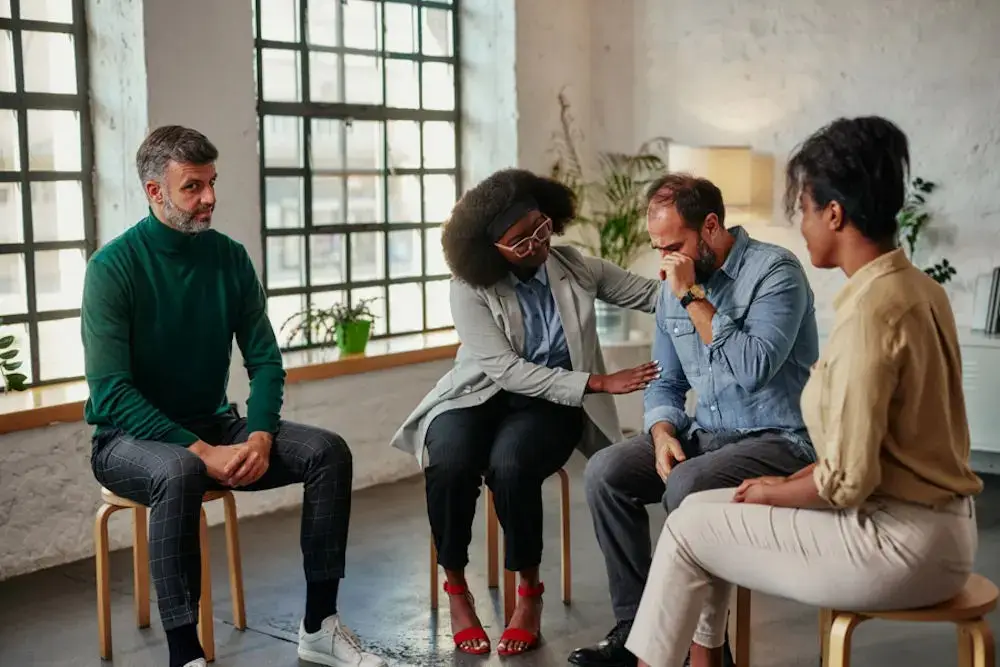In relationships affected by addiction or mental health challenges, the lines between caring and enabling can easily blur. Many people who love someone struggling with a disorder may unknowingly develop codependent behaviors, believing they are helping when they are actually contributing to a cycle of dysfunction. Understanding the signs of codependency and enabling is crucial for both personal well-being and the health of the person you’re trying to support.
What is Codependency? Defining the Behavior
Codependency is a behavioral condition in relationships where one person enables another’s addiction, poor mental health, immaturity, irresponsibility, or underachievement. At its core, codependency is an excessive emotional or psychological reliance on a partner, typically one who requires support due to a chronic condition or addiction.
The term originated in the context of substance use disorders, where the codependent partner often assumes the caretaker role, prioritizing the needs of the addicted individual over their own. However, codependency can appear in any relationship, including romantic, familial, or platonic friendship.
The Connection Between Codependency and Enabling
While codependency involves unhealthy emotional reliance, enabling refers to specific actions that protect someone from the consequences of their behavior. Enabling often arises from codependent tendencies. For example, a codependent spouse may call in sick for their partner who is hungover. This shields them from workplace accountability. This behavior might feel like love, but it helps perpetuate harmful patterns.
Codependency creates an ideal setting for enabling. The more a person tries to control or fix another person’s problems, the more the other individual is denied the opportunity to face the impact of their choices — and possibly seek recovery.
Signs of Codependency in Relationships
Recognizing codependent behaviors can be the first step toward healing. Here are some common signs:
- Low self-esteem: Relying on others for a sense of worth or validation.
- People-pleasing: Going to great lengths to avoid conflict or gain approval.
- Poor boundaries: Struggling to say no or over-involving oneself in another’s life.
- Caretaking: Feeling responsible for others’ feelings, decisions, or actions.
- Need for control: Attempting to manage others’ behaviors to feel secure.
- Denial: Ignoring or minimizing the severity of someone else’s harmful actions.
These signs may not always be obvious. They often evolve gradually, especially in relationships with someone who is dealing with substance use or emotional instability.
Emotional and Psychological Symptoms of Codependency
Codependency isn’t just about behavior. It also takes a toll on mental and emotional health. Individuals may experience:
- Anxiety: Constant worry about the well-being or decisions of others.
- Depression: Feelings of worthlessness or sadness tied to relationship struggles.
- Resentment: Built-up frustration from unmet needs or lack of reciprocity.
- Fear of abandonment: Extreme distress at the thought of being alone or rejected.
- Emotional exhaustion: Burnout from constant caretaking and neglecting self-care.
When someone becomes emotionally entangled in another’s issues, they often lose sight of their own needs and identity, leading to profound emotional distress.
Common Enabling Behaviors and How They Impact Recovery?
 Enabling takes many forms, and even well-intentioned actions can be harmful. Common enabling behaviors include:
Enabling takes many forms, and even well-intentioned actions can be harmful. Common enabling behaviors include:
- Making excuses for someone’s behavior
- Providing financial support despite ongoing addiction
- Taking over responsibilities to “keep the peace”
- Avoiding difficult conversations about consequences
- Covering up behavior or lying on someone else’s behalf
These behaviors delay the natural consequences that might otherwise motivate a person to seek help. While it’s understandable to want to protect a loved one, enabling inadvertently supports the very behaviors that cause harm.
The Role of Codependency in Addiction and Mental Health
Codependency can contribute to the maintenance and escalation of addiction and mental health issues. When one person continually rescues another from the consequences of their choices, the person struggling is less likely to recognize the need for change.
Moreover, codependent relationships often foster instability. The individual with addiction may feel disempowered or controlled, while the codependent partner may feel increasingly anxious, resentful, or emotionally drained. Both individuals can become stuck in an unhealthy dynamic that impedes healing on both sides.
How to Recognize If You Are Enabling Someone’s Harmful Behavior?
Ask yourself the following questions:
- Do you feel responsible for fixing someone else’s problems?
- Have you lied or made excuses to protect someone from the consequences of their actions?
- Do you avoid discussing difficult topics to prevent conflict?
- Have you compromised your own values or needs to keep someone else comfortable?
- Do you feel anxiety or guilt when you try to prioritize yourself?
If you answered yes to many of these questions, you may be enabling someone without realizing it. Recognizing these patterns is not about self-blame — it’s about gaining awareness and reclaiming your own well-being.
The Impact of Codependency on Personal Well-being
Over time, codependency can lead to:
- Loss of self-identity: Your sense of self becomes entangled in someone else’s life.
- Emotional dysregulation: Mood swings based on the other person’s behavior.
- Chronic stress: Constant worry or tension about the state of the relationship.
- Physical symptoms: Headaches, fatigue, insomnia, or illness stemming from emotional strain.
In extreme cases, individuals may experience emotional numbness, isolation, or even develop their own mental health concerns as a result of prolonged codependent behavior.
Breaking the Cycle of Codependency and Enabling
Recovery starts with awareness. Once you understand the dynamics at play, you can begin to shift your behavior and mindset. Breaking the cycle of codependency can involve:
- Setting healthy boundaries: Learning to say no and detach with love.
- Prioritizing self-care: Recognizing your own needs and meeting them without guilt.
- Letting go of control: Accepting that you cannot “save” or fix another person.
- Seeking support: Talking to others who understand codependency and can offer guidance.
Change doesn’t happen overnight. But with time and support, it’s possible to build healthier relationship dynamics.
Healthy Boundaries: A Key to Overcoming Codependency
Boundaries are essential for maintaining your mental and emotional health. In codependent relationships, personal boundaries are often weak or nonexistent. Learning to establish and maintain boundaries means:
- Defining what behaviors are acceptable and unacceptable to you
- Communicating limits clearly and respectfully
- Following through with consequences when boundaries are crossed
- Respecting the boundaries of others as well
Boundaries aren’t about punishment, but respect. They create space for both people in a relationship to take responsibility for their own lives.
Therapy and Support for Codependency and Enabling Behaviors
Individual therapy can be a powerful tool in recovering from codependency. Common therapeutic approaches include:
- Cognitive Behavioral Therapy (CBT): Cognitive behavioral therapy can help identify and reframe negative thinking patterns.
- Dialectical Behavior Therapy (DBT): Dialectical behavior therapy focuses on teaching emotional regulation and interpersonal skills.
- Family therapy: Family therapy addresses dysfunctional family dynamics and improves communication.
- Support groups: Groups like Codependents Anonymous (CoDA) provide community and shared experiences.
A therapist can help you understand the roots of your codependency, process your emotions, and develop healthier relationship patterns.
How to Seek Help: Recovery from Codependency and Enabling
Recovery from codependency often involves a combination of education, therapy, and community support. Here are some steps you can take:
- Educate yourself: Read books, attend workshops, or listen to podcasts about codependency.
- Find a therapist: Seek a licensed therapist who specializes in relationship dynamics or addiction recovery.
- Join a support group: Groups like CoDA or Al-Anon can help you feel less alone.
- Journal or reflect: Writing down your thoughts can bring clarity and insight.
- Practice self-compassion: Be gentle with yourself as you learn and grow.
Recovery is a journey, not a destination. The more you invest in your own healing, the more equipped you’ll be to form healthy connections.
Supporting a Loved One Without Enabling Their Behavior
You can love someone without enabling them. Here’s how:

- Encourage responsibility: Let them face the natural consequences of their choices.
- Be honest: Speak truthfully, even when it’s uncomfortable.
- Offer resources, not rescues: Guide them to treatment or support, but don’t do the work for them.
- Stay grounded in your boundaries: Refuse to compromise your well-being for the sake of their comfort.
- Lead by example: Model what self-respect and self-care look like in your own life.
Your role is not to save someone with addiction or mental health issues. The people in a person’s life are meant to support them in saving themselves.
Moving Toward Healing: Building Healthier Relationships
Healthy relationships are based on mutual respect, open communication, and emotional interdependence. They should not be based on enmeshment. As you recover from codependency and enabling, you’ll be better able to:
- Cultivate your own interests and identity
- Express your needs without fear
- Engage in honest, compassionate dialogue
- Build trust through consistency and transparency
- Attract relationships that honor your worth
Healing is not just about ending harmful patterns. It’s about creating space for connection that nourishes both individuals.
Seeking Help at First City Recovery in Indiana
At First City Recovery Center in Indiana, we understand the complex dynamics of codependency and enabling, especially when addiction is involved. Our comprehensive treatment programs address not just substance use disorders, but the relational patterns that sustain them.
We offer services that include:
- Individual and family therapy sessions
- Education on healthy boundaries and communication
- Dual diagnosis treatment for co-occurring mental health conditions
- Support groups for both individuals and families
Whether you are struggling with addiction or you’re a loved one navigating a codependent relationship, First City Recovery can help you break free from harmful cycles and build a healthier future.
You don’t have to navigate this journey alone; help and hope are within reach. If you’re ready to begin healing from codependency or want to learn more about how to support a loved one without enabling them, contact First City Recovery in Indiana today.
















